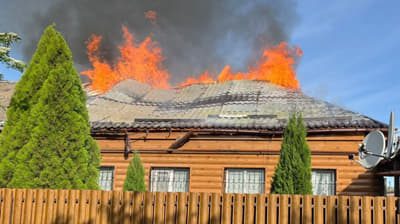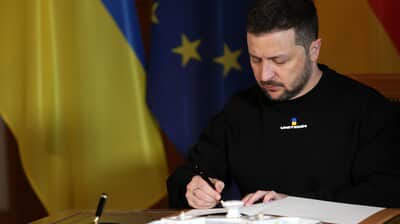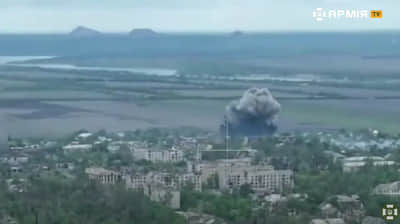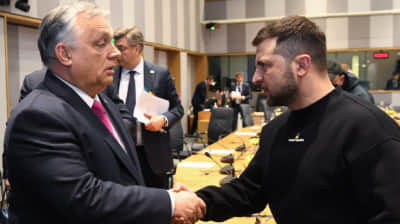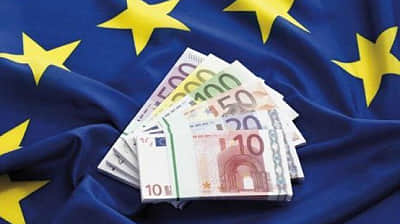ISW analyses why Kremlin is manipulating grain deal
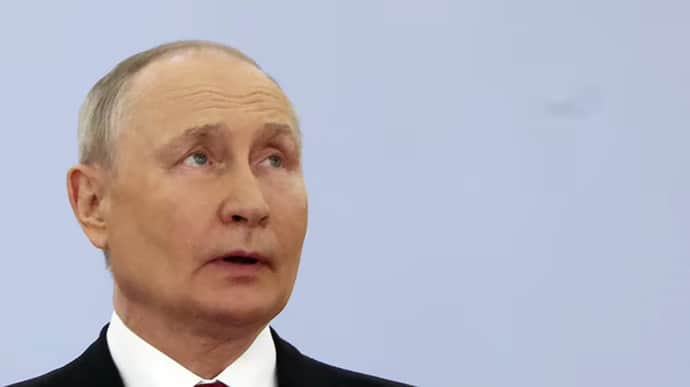
Russia is once again trying to undermine Western support for Ukraine by manipulating the Black Sea Grain Initiative and striking at Ukrainian ports and grain infrastructure.
Source: Institute for the Study of War (ISW)
Details: The review notes that the Kremlin appears to be trying to soften the Russian Defence Ministry's statement made on 19 July regarding the treatment of civilian vessels in the Black Sea as military targets.
According to the ISW’s analysts, Russia is manoeuvring to preserve the possibility of modifying the current agreement rather than negotiating an entirely new one as it seeks to obtain significant concessions from the West.
In addition, the Russian Foreign Ministry is likely trying to make the case that Russia is still a de jure party to the grain agreement despite withdrawing from it, to leave a channel open for Russia to renegotiate the grain agreement on terms more favourable than concluding an entirely new one.
ISW analysts recall that Putin has put forward a number of demands for Russia's return to the 19 July agreement, in particular the lifting of sanctions on Russian grain and fertiliser supplies and the restoration of the connection to the SWIFT financial messaging system of Russian banks servicing food supplies.
Experts conclude that the increased strikes by the Russian military on Ukrainian port and grain infrastructure, as well as threats of maritime escalation in the Black Sea, are probably intended, among other things, to put pressure on the West to agree to these demands.
The report highlights that the Kremlin regularly uses escalating rhetoric to force the West to make concessions, with some officials often pushing the rhetoric while others feign willingness to engage in negotiations.
It is also noted that Putin has continued to sow discord within NATO and between Ukraine and NATO, probably to support the Kremlin's efforts regarding the Black Sea Grain Initiative and undermine Ukraine's long-term support from the West.
The report notes that the arrest of terrorist and critic of the Russian government Igor Girkin (Strelkov) on 21 July may be the public manifestation of a shift in the balance of power between factions in the Kremlin, possibly harming the Russian Federal Security Service (FSB), in which Girkin had served.
Russian insider sources asserted that Girkin's detention was a part of the Russian Presidential Administration's efforts to crack down on a few prominent Russian ultranationalists in the wake of the violent uprising on 24 June by Wagner Group financier Yevgeny Prigozhin.
In addition, the Russian authorities have also opened a criminal case against Girkin’s associate, Vladimir Kvachkov, a former colonel of the Main Intelligence Directorate (GRU), on charges of discrediting the Russian Armed Forces.
Analysts point out that the Wagner mutiny has probably changed the balance of power in the Kremlin, potentially depriving some individuals, including Girkin, of Putin's favour and, therefore, part of their power.
Regarding the counteroffensive, experts point out that Ukrainian troops continued counteroffensive operations on at least three areas of the front on 21 July and achieved success in some sectors.
To quote the ISW’s Key Takeaways on 21 July:
- The arrest of former Russian officer and ardent ultranationalist Igor Girkin (Strelkov) on 21 July may be the public manifestation of a shifting balance of power among Kremlin factions, possibly to the detriment of the Russian Federal Security Service (FSB), in which Girkin had served.
- Russian insider sources claimed that Girkin’s arrest is part of the Russian Presidential Administration’s efforts to crack down on select high-profile Russian ultranationalists following Wagner Group financier Yevgeny Prigozhin’s armed rebellion on 24 June.
- Girkin’s arrest follows other criminal charges against ultranationalists with past ties to Russian security services and indicates that unknown Russian officials may be targeting prominent ultranationalists who routinely reveal insider information about the Kremlin.
- Wagner’s rebellion likely shifted the balance of power in the Kremlin, potentially depriving some patrons – including Girkin’s patron – of Putin’s favour and, therefore, of some of their power.
- Russian forces conducted missile and drone strikes against southern Ukraine for a fourth night on 21 July following Russia’s withdrawal from the Black Sea Grain Initiative.
- The Kremlin appears to be attempting to soften the Russian Ministry of Defence's 19 July announcement about viewing civilian ships in the Black Sea as legitimate military targets.
- Russia is manoeuvring to retain the option of modifying the current agreement rather than negotiating an entirely new one as it seeks to extract extensive concessions from the West.
- Russian President Vladimir Putin continued efforts to sow intra-NATO and Ukrainian-NATO divisions, likely aimed at supporting the Kremlin’s Black Sea Grain Initiative effort and undermining long-term Western support for Ukraine.
- Ukrainian forces continued counteroffensive operations on at least three front sectors on 21 July and made gains in some areas.
- Pro-Wagner Group sources continue to express loyalty to Wagner Group financier Yevgeny Prigozhin as the future of the Wagner Group and Prigozhin’s role in the organization remains unclear.
- French Presidential Foreign Policy Advisor Emmanuel Bonne was likely referring to dual-use technology and non-lethal aid when speaking about Chinese supplied equipment to Russia on 21 July.
- A Russian milblogger affiliated with the Russian Airborne Forces claimed that recent speculations about the dismissal of 7th Guards Mountain VDV Division Commander Major General Alexander Kornev are false.
- Russian forces conducted offensive operations in the Kupiansk, Kreminna, Bakhmut areas, and along the Avdiivka-Donetsk City line and reportedly advanced in the Kupiansk and Kreminna areas.
- Ukrainian forces conducted counteroffensive operations in the Bakhmut area, and along the Kupiansk-Svatove-Kreminna and Avdiivka Donetsk City lines, and advanced in the Bakhmut area.
- Russian forces conducted limited ground attacks in western Donetsk Oblast, the western Donetsk-eastern Zaporizhia Oblast area, and south of Orikhiv, and reportedly advanced south of Orikhiv.
- Ukrainian forces conducted counteroffensive operations in the western Donetsk-eastern Zaporizhia Oblast area and in western Zaporizhia Oblast and made gains in the western Donetsk-eastern Zaporizhia Oblast area.
- Russian officials announced that they will amend a Russian State Duma bill originally aimed at incrementally raising the conscription age so that there is an immediate increase of the upper age limit for the spring 2024 conscription cycle.
- Russian occupation authorities continue to relocate Ukrainian children in occupied Ukraine to Russia.
- A Wagner-linked source reported that Wagner temporarily relocated its headquarters from Molkino, Krasnodar Krai, to Belarus and that Wagner’s work to transfer combat experience to the Belarusian military is in full swing.
Journalists fight on their own frontline. Support Ukrainska Pravda or become our patron!


